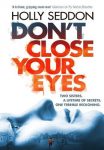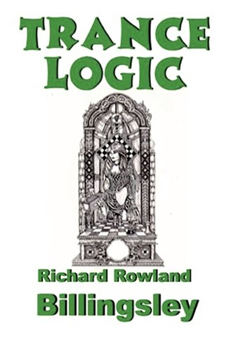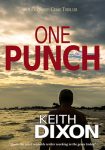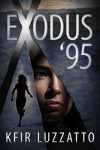

July 17 – 23: “How hard do you work to avoid ‘formula’ writing?”
 How hard do you work to avoid “formula” writing? That’s the question this week for ITW Members Keith Dixon, Alison Morton, Kfir Luzzatto, Holly Seddon, Richard Rowland Billingsley, Billy Lyons, Brian Klingborg and Peter James.
How hard do you work to avoid “formula” writing? That’s the question this week for ITW Members Keith Dixon, Alison Morton, Kfir Luzzatto, Holly Seddon, Richard Rowland Billingsley, Billy Lyons, Brian Klingborg and Peter James.
~~~~~
 Peter James is one of the UK’s biggest selling crime thriller writers. He’s had eleven consecutive Sunday Times No 1 bestsellers with his Detective Superintendent Roy Grace series, published in 37 languages in 52 countries, with world sales of 18m copies. He is the recipient of the 2016 CWA Diamond Dagger for sustained excellence, and in 2015 was publicly voted by WH Smith readers as the Best Crime Author of All Time. He lives with his wife, Lara, and a menagerie of animals near Brighton in Sussex, where he was born and raised, and in Notting Hill, London.
Peter James is one of the UK’s biggest selling crime thriller writers. He’s had eleven consecutive Sunday Times No 1 bestsellers with his Detective Superintendent Roy Grace series, published in 37 languages in 52 countries, with world sales of 18m copies. He is the recipient of the 2016 CWA Diamond Dagger for sustained excellence, and in 2015 was publicly voted by WH Smith readers as the Best Crime Author of All Time. He lives with his wife, Lara, and a menagerie of animals near Brighton in Sussex, where he was born and raised, and in Notting Hill, London.
 Holly Seddon is a full time writer, living slap bang in the middle of Amsterdam with her husband, James and a house full of children and pets. Holly has written for newspapers, websites and magazines since her early 20s after growing up in the English countryside, obsessed with music and books. Her first novel Try Not to Breathe was published worldwide in 2016 and became a domestic and international bestseller. Don’t Close Your Eyes is her second novel.
Holly Seddon is a full time writer, living slap bang in the middle of Amsterdam with her husband, James and a house full of children and pets. Holly has written for newspapers, websites and magazines since her early 20s after growing up in the English countryside, obsessed with music and books. Her first novel Try Not to Breathe was published worldwide in 2016 and became a domestic and international bestseller. Don’t Close Your Eyes is her second novel.
 Billy Lyons became an avid reader and writer of horror fiction in early childhood. He is the author of two published short stories. “Cell 334” was published in the November 2014 edition of Another Realm Magazine. “Black-Eyed Children, Blue-Eyed Child” was published in High Strange Horror, a horror anthology published in 2015 by Muzzleland Press, where Billy is a contributing writer of book and magazine reviews. Blood and Needles is his debut novel.
Billy Lyons became an avid reader and writer of horror fiction in early childhood. He is the author of two published short stories. “Cell 334” was published in the November 2014 edition of Another Realm Magazine. “Black-Eyed Children, Blue-Eyed Child” was published in High Strange Horror, a horror anthology published in 2015 by Muzzleland Press, where Billy is a contributing writer of book and magazine reviews. Blood and Needles is his debut novel.
 Alison Morton writes the award-winning Roma Nova thriller series featuring modern Praetorian heroines. She put this down to her deep love of Roman history, six years’ military service, a masters’ in history and an over-vivid imagination. She blogs, reads, cultivates a Roman herb garden and drinks wine in France with her husband of 30 years.
Alison Morton writes the award-winning Roma Nova thriller series featuring modern Praetorian heroines. She put this down to her deep love of Roman history, six years’ military service, a masters’ in history and an over-vivid imagination. She blogs, reads, cultivates a Roman herb garden and drinks wine in France with her husband of 30 years.
 Richard Rowland Billingsley is the author of weird fiction. He is from Austin Texas and lives in Fayetteville Arkansas. He is a member of both the Horror Writers Association, and the International Thriller Writers. His book, Trance Logic was published by New Pulp Press. Trance Logic is the first book in a continuing series about Rainbeaux Le Blanc, a psychic spy demon fighter.
Richard Rowland Billingsley is the author of weird fiction. He is from Austin Texas and lives in Fayetteville Arkansas. He is a member of both the Horror Writers Association, and the International Thriller Writers. His book, Trance Logic was published by New Pulp Press. Trance Logic is the first book in a continuing series about Rainbeaux Le Blanc, a psychic spy demon fighter.
 Brian Klingborg has lived and worked in the U.S., Asia and Europe. He has written for television and authored books and articles on the Chinese martial arts. He lives in New York City, but still considers himself a Californian at heart.
Brian Klingborg has lived and worked in the U.S., Asia and Europe. He has written for television and authored books and articles on the Chinese martial arts. He lives in New York City, but still considers himself a Californian at heart.
 Keith Dixon was born in Yorkshire and grew up in the Midlands. He’s been writing since he was 13 years old in a number of different genres: thriller, espionage, science fiction, literary. He’s the author of seven novels in the Sam Dyke Investigation series and two other non-crime works, as well as two collections of blog posts on the craft of writing. When he’s not writing he enjoys reading, learning the guitar, watching movies and binge-inhaling great TV series. He’s currently spending more time in France than is probably good for him.
Keith Dixon was born in Yorkshire and grew up in the Midlands. He’s been writing since he was 13 years old in a number of different genres: thriller, espionage, science fiction, literary. He’s the author of seven novels in the Sam Dyke Investigation series and two other non-crime works, as well as two collections of blog posts on the craft of writing. When he’s not writing he enjoys reading, learning the guitar, watching movies and binge-inhaling great TV series. He’s currently spending more time in France than is probably good for him.
 Kfir Luzzatto is the author of seven novels, several short stories and two non-fiction books. Kfir was born and raised in Italy, and moved to Israel as a teenager. He acquired the love for the English language from his father, a former U.S. soldier, a voracious reader, and a prolific writer. Kfir has a PhD in chemical engineering and works as a patent attorney. He lives in Omer, Israel, with his full-time partner, Esther, their four children, Michal, Lilach, Tamar, and Yonatan, and the dog, Elvis. Kfir has published extensively in the professional and general press over the years. For almost four years he wrote a weekly “Patents” column in Globes (Israel’s financial newspaper). His most recent nonfiction book, FUN WITH PATENTS—The Irreverent Guide for the Investor, the Entrepreneur and the Inventor, was published in 2016. He is an HWA (Horror Writers Association) and ITW (International Thriller Writers) member.
Kfir Luzzatto is the author of seven novels, several short stories and two non-fiction books. Kfir was born and raised in Italy, and moved to Israel as a teenager. He acquired the love for the English language from his father, a former U.S. soldier, a voracious reader, and a prolific writer. Kfir has a PhD in chemical engineering and works as a patent attorney. He lives in Omer, Israel, with his full-time partner, Esther, their four children, Michal, Lilach, Tamar, and Yonatan, and the dog, Elvis. Kfir has published extensively in the professional and general press over the years. For almost four years he wrote a weekly “Patents” column in Globes (Israel’s financial newspaper). His most recent nonfiction book, FUN WITH PATENTS—The Irreverent Guide for the Investor, the Entrepreneur and the Inventor, was published in 2016. He is an HWA (Horror Writers Association) and ITW (International Thriller Writers) member.
- LAST GIRL MISSING with K.L. Murphy - July 25, 2024
- CHILD OF DUST with Yigal Zur - July 25, 2024
- THE RAVENWOOD CONSPIRACY with Michael Siverling - July 19, 2024
